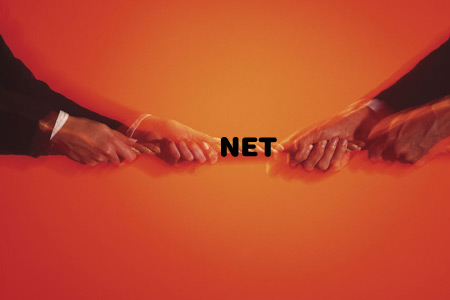Net neutrality is a concept that is not new to the world, but rather it remains vastly unrecognized by the citizens of the United States, which is pretty regrettable considering the far-reaching implications it has for every Internet-user if it is to ever become enacted into law. It is most common that those who know of the concept either vehemently agree or vehemently disagree with it. From the perspective of those in support of this regulatory measure, net neutrality is the solution to an inevitable problem, but from the perspective of those in opposition to it; net neutrality is the beginning of a downward spiral, where regulations have been implemented where none have been needed. This heated debate caught my attention about a year ago and is the reason why I’ve chosen to dig deeper into the complexities of this concept known as net neutrality.
To gather my data, I have created a survey consisting of four multiple-choice questions, through the website, http://www.polleverywhere.com/my/polls. Each question was answered by thirty people, which was the maximum number of respondents permitted to answer free of charge. The main theme applied to all questions revolved around individual awareness and understanding of ‘net neutrality.’ My first question asks whether or not the participant agrees with censorship of the Internet, while my second question considers whether or not there should be a way to outlaw some things online? The third question asks the participant whether or not they are aware of the growing attempts to regulate the Internet, and my fourth question aims to learn what each participant thinks/knows about net neutrality. I will display this data through a website/blog (http://com5280netneutrality.blogspot.com/) that I’ve created to discuss the complexities which comprise net neutrality.
It is my greatest hope that through this process of intellectual exploration and in-depth research, that I might eventually reach a level of comprehensive clarity to where I can confidently explain the perspective of net neutrality I most personally identify with. Just by going off what I’ve learned thus far, I’m thinking that it will take a miraculous discovery to get me to believe that the implementation of net neutrality into law is anything but a degradation of our freedom. A world free from discrimination and inequality sounds great, but more than likely will never be attained because no human is perfect enough to achieve that utopian world so desired by many. The imperfection of human nature is the reason why I will forever be skeptical of the amount of power I allot to another individual with regards to regulating and controlling various different aspects of my life; and yes, this includes the Internet.

No comments:
Post a Comment